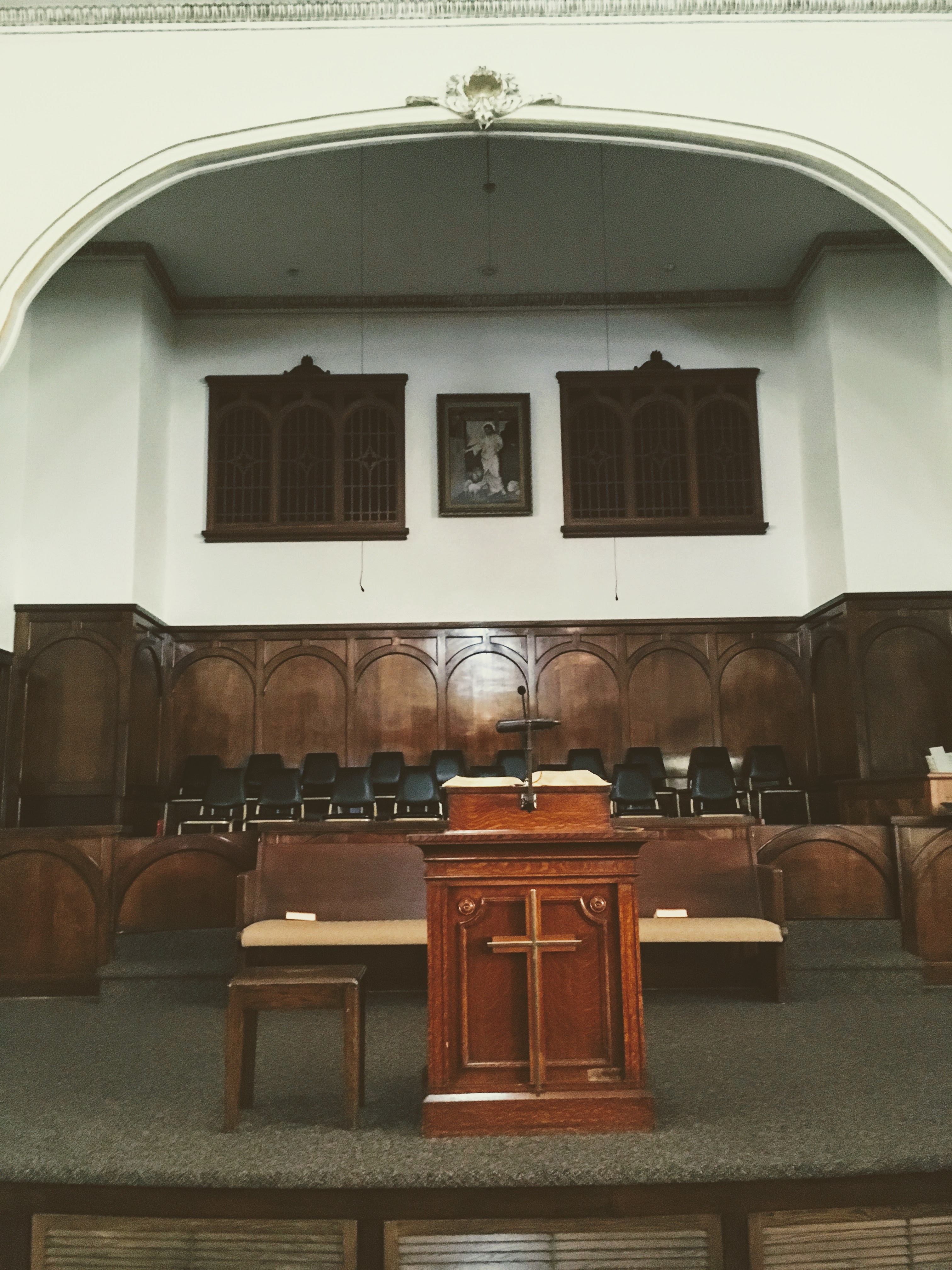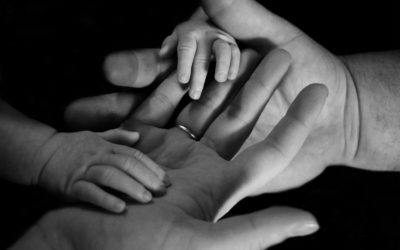Due to music rights issues, we can’t post or stream this video on the website right now. Click the “Watch on Facebook” link above to go to Facebook to view it, or read the transcript below. We apologize for the inconvenience—we’re working to fix this soon!
- January 31, 2021
- Order of Worship
- Prelude
- Announcements
- Music: “Look up, Child”
- Prayer Concerns
- Pastoral Prayer
- Message: “Is God in Control?”
- Scripture: Psalm 46:1-3
- Open Worship
- Benediction
- Postlude
Announcements
Good morning, and welcome to worship at University Friends!
- Thank you, Rosemary. Thanks also for technical support by Michael Barrett and Joe Dawley, music coordination by Dawn Blue.
- Our plants and flowers are in honor of Dave McDonald.
- We are live streaming on Facebook and the church website (wichitaquakers.org).
- Please feel free to share our worship with your Facebook friends by posting a link.
- Please also feel free to comment on the Facebook page with prayer concerns, announcements, or words of ministry.
- And if you worship with us online only and would like to be more connected, please leave a message on the Facebook page or website. Someone will get back to you, and, if you wish, we can put you on the list to receive our weekly newsletter.
Today
- After worship this morning, some of our younger children are gathering on Zoom for a story from Greg Newby.
- 3:00 p.m. ~ 205 Sunday Class via Zoom
This week
- Monday, February 1, 12:00 pm, Prayer with Sue
- Tuesday, February 2, 6:30 pm, Ministry & Counsel
- Wednesday, February 3, 6:30 pm, Bell Choir
- Thursday, February 4, 8:30 am, Prayer with Kim
- Thursday, February 4, 4:00 pm, Assets Committee
- Friday, February 5, 6:15 pm, All-Church Retreat w/Colin Saxton
- Saturday, February 6, 9:00 am, All-Church Retreat w/Colin Saxton
Music: “Look Up, Child”
Prayer concerns
- Dorothy McKay is doing so well that she went home Wednesday! Hooray!
- Don and Linda Mallonee, as Don had a small stroke. He was released from the hospital on Thursday and is now home. He is weak, and they are trying to get his medications straightened out.
- The McDonald family
- Our church retreat, at this time of new beginnings – May we find clarity and energy for the tasks at hand and the decisions we will need to make as we find our way forward. May we continue to find ways to use our assets wisely and well. May we be a beacon of love in our world. May we have the courage to walk through the doors God is opening.
Prayer
God of comfort and joy, we open our hearts to your Light and Love.
Open our imaginations to new dimensions of your love,
and heal us of all that severs us from you and one another,
that we may grow into the vision you unfold before us. Amen. (https://lectionary.library.vanderbilt.edu/prayers.php?id=63)
Message: “Is God in Control?”
Scripture: Psalm 46:1-3
Early this past week, my son (who is the pastor of the Friends church in Muncie) posted this on Facebook:
What sayings bother you? I am forever disappointed with the phrase “too much time on your hands”. (Something never said of wealthy white men btw). …
Among the sayings that people mentioned in response are these:
- We’ve always done it that way.
- Boys will be boys.
- I don’t mean to interrupt, but ….
- Everything happens for a reason.
- God is in control.
I have to admit that some of those sayings bother me too. And I am going to say something that you might find a bit shocking. I don’t believe God is in control.
Some people say God is in control as a way of finding comfort. But I find it deeply disturbing, because I look around and see, yes, life and health and joy and peace, but also a level of suffering and dysfunction that can’t be pleasing to the God I worship.
Thinking about whether God is in control relates to last Sunday’s 205 Sunday School class, which focused on a section of the book of Job.
Job is wisdom literature. In the Hebrew Bible, the Old Testament, these writings are considered wisdom literature: Job, Proverbs, Ecclesiastes, and some of the Psalms.
Wisdom literature is a type of writing that, as my favorite book on the Old Testament says, provides “direction to those who sought to live moral and productive lives. They are textbooks of a sort to those who were looking for help in how to live life: how to think, how to cope, … how to succeed” (Bandstra, Reading the Old Testament, p. 409).
The book of Proverbs is primarily a collection of sayings about how to succeed.
However [as my favorite book about the Old Testament acknowledges], not everyone who adopts the tried and true habits of success will actually find success. The circumstances of life sometimes seem to frustrate every effort to achieve happiness and prosperity. How can this be so? Where is the justice of life? How should one cope with failure? The book of Job asks just such questions (p. 439).
… the book of Job is a frontal assault on the glib retribution categories of traditional wisdom, as represented by the book of Proverbs…. It recognizes that the standard recommendation to ‘do right and you will be blessed’ does not actually work out in every situation (p. 447).
The framework of Job seems a bit like a Star Trek episode in which the gods are toying with people.
Job was a morally upstanding individual. He had considerable wealth and a fine family. When the divine council met in heaven, God expressed … pride in Job, but … was challenged by one called the adversary…. ***
The adversary challenged God to take everything away from Job in order to see what his reaction would be. [God] first gave the adversary permission to remove all of Job’s wealth and family and later his physical health. Job was reduced to a suffering outcast. Three friends appeared at his side to give him counsel (Bandstra, p. 448).
The three friends basically tell Job that he must have done something wrong to bring down all this suffering. Job said, “No, I didn’t do anything wrong. Really, I didn’t.” The friends insisted, “You must have.” Job was certain he had not.
In this way, the book of Job tackles the problem of evil. “The problem of evil refers to the challenge of reconciling belief in an omnipotent, omnibenevolent, and omniscient God, with the existence of evil and suffering in the world” (https://en.wikipedia.org/wiki/Problem_of_evil#:~:text=The%20problem%20of%20evil%20refers,described%20either%20experientially%20or%20theoretically).
An omniscient God knows everything, knows what’s going on in our world, knows that suffering and injustice exist.
An omnipotent God is all-powerful, can do anything and everything.
An omnibenevolent God is loving, wants all the best for everyone.
The problem of evil says if God knows about suffering and wants the best for everyone and can do anything and everything, then what’s up? Why doesn’t God do something about suffering and injustice?
Is the current pandemic God’s will? I don’t believe it is because I don’t think God is in control of the pandemic.
Did God want over two million people to die around the world? Did God want over 400,000 people in the United States to die? I don’t think so. The pandemic is the result of disease processes.
Did God cause a tornado to destroy Greensburg, Kansas? I don’t think so. Tornadoes are just weather, terrorist weather (a friend of mine calls them), but weather, not literally acts of God aimed at a particular family or town.
Was Donald Trump chosen by God to be the president of the United States? Was Joe Biden chosen by God to be the president of the United States? I don’t think so. Those men got to be president because of money and power and human choices.
Does God want children to be abused and neglected? I don’t think so. I think God would like every child to nurtured and loved. Not all parents nurture and love their children, but that’s not God’s fault, is it?
Did God want my daughter to die? Did God want Patty Savely’s son to die? I don’t think so.
If I were to believe that God is in control, then at least to some extent, God is to blame for my daughter’s death. I can’t go there.
I recently read The Nickel Boys by Colson Whitehead. It’s a fictional account of one young man’s experience in what was called the Nickel Academy, a so-called reform school for Florida’s juvenile offenders. The book is based on a real school, and the story tells of boys treated so badly that the book was difficult to read. Boys fed slim rations of bad food while school employees sold the school’s food to members of the community. Boys beaten sometimes to death.
If we say such things are God’s will, it undermines human agency. We have allowed such things to happen. It is not God’s fault.
Sometimes I hear people say something like God is making a beautiful tapestry, and we think the world is in bad shape because we see only the messy underside of the tapestry, not the side God sees.
I just can’t go there either. Six million Jews perished in the Holocaust, and many more suffered. “Each day, 25,000 people, including more than 10,000 children, die from hunger and related causes,” according to a 2008 United Nations article (https://www.un.org/en/chronicle/article/losing-25000-hunger-every-day#:~:text=Each%20day%2C%2025%2C000%20people%2C%20including,million%20into%20poverty%20and%20hunger) That’s a lot of suffering. I can’t believe God has a beautiful tapestry that requires that much suffering.
I would rather believe in a God who, for whatever reasons, is unable to end human suffering, than to believe in a God who is able but unwilling to end human suffering. That is, I would rather say God is less than omnipotent than to say God is unloving. I would rather say God is not in control than to say God is responsible for all that’s wrong with the world. That’s a choice I have made.
In the end of the book of Job, God responds to Job: “Where were you when I laid the foundations of the earth?” (Job 38:4a).
Does the book of Job end, then, by saying that justice isn’t important to God? “Life isn’t fair, Job. Get over it.” Is that it?
Harold Kushner, in When Bad Things Happen to Good People, says that’s not the point.
Let me suggest [Kushner writes] that the author of the book of Job … believes in God’s goodness and in Job’s goodness and is prepared to give up his belief in proposition (A): that God is all-powerful. Bad things do happen to good people in this world, but it is not God who wills it. God would like people to get what they deserve in life, but [God] cannot always arrange it. Forced to choose between a good God who is not totally powerful, or a powerful God who is not totally good, the author of the Book of Job chooses to believe in God’s goodness (pp. 42-43).
Kushner goes on to say that God has imposed limits on God’s own power to leave us room to be fully human.
In order to let us be free, in order to let us be fully human, God has to leave us free to choose to do right or to do wrong (p. 80).
Our moral freedom means that, if we choose to be selfish or dishonest, we can be selfish and dishonest, and God will not stop us (p. 80).
Why, then, do bad things happen to good people? One reason is that our being human leaves us free to hurt each other, and God can’t stop us without taking away the freedom that makes us human (p. 81).
If God isn’t in control, then what can we do?
One thing we can do – we can take responsibility for things over which we have some control. In the face of suffering, we can show compassion. We can work for peace. We can work for justice. We can decide how we respond to the circumstances of our own lives.
Another thing we can do — we can avoid blaming God for things over which God does not exercise control, such as weather and disease and human actions.
Finally, we can recognize that even though God will not keep bad things from happening, God is still with us.
I find great comfort in scriptures like these:
Psalm 46:1-3
1 God is our refuge and strength,
a very present[a] help in trouble.
2 Therefore we will not fear, though the earth should change,
though the mountains shake in the heart of the sea;
3 though its waters roar and foam,
though the mountains tremble with its tumult.
Romans 8:38
I am convinced that neither death, nor life, nor angels, nor rulers, nor things present, nor things to come, nor powers, 39 nor height, nor depth, nor anything else in all creation, will be able to separate us from the love of God in Christ Jesus our Lord.
Romans 8:28 says, “We know that all things work together for good[u] for those who love God, who are called according to his purpose.”
This verse doesn’t say all things come from the hand of God. It does say that if we are open to God’s love and God’s call, God can work good from whatever comes our way.
I can recognize that God has worked in me to use difficult experiences for good. Is that reason enough to justify my daughter’s death? No. Just no. But I will take the good.
Is God in control? I don’t think so. Bad things do happen to good people. God does not want those bad things to happen, and, whatever happens, God is still a source of comfort and strength. God is still and always reaching out to us in love.
Open worship
Benediction
Postlude
We are meeting in person and also streaming our sermons on Facebook at 10:00 AM CST. Watch live:
https://www.facebook.com/universityfriendschurch/
Not on Facebook? You can see all of our posts and videos on our site here!



